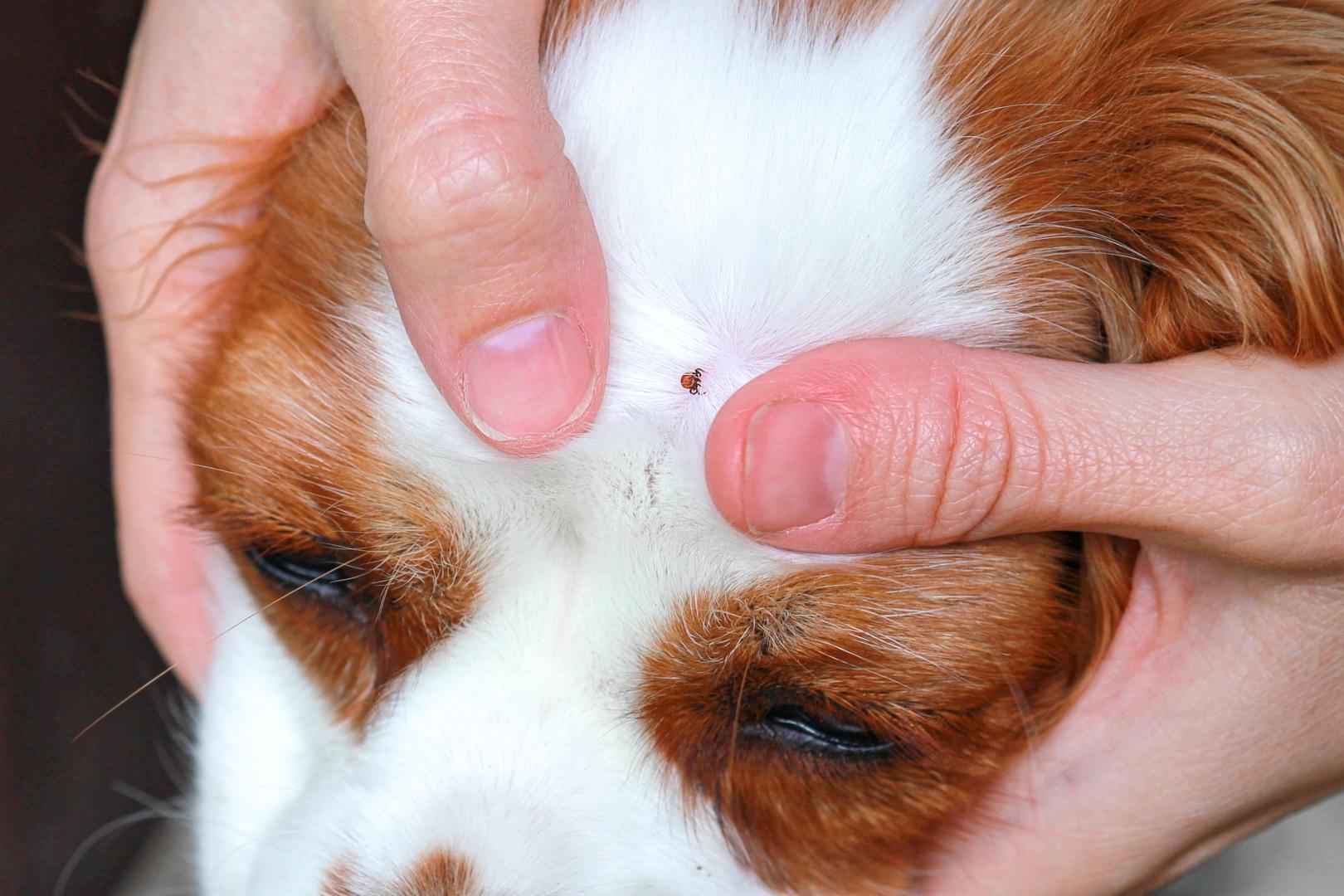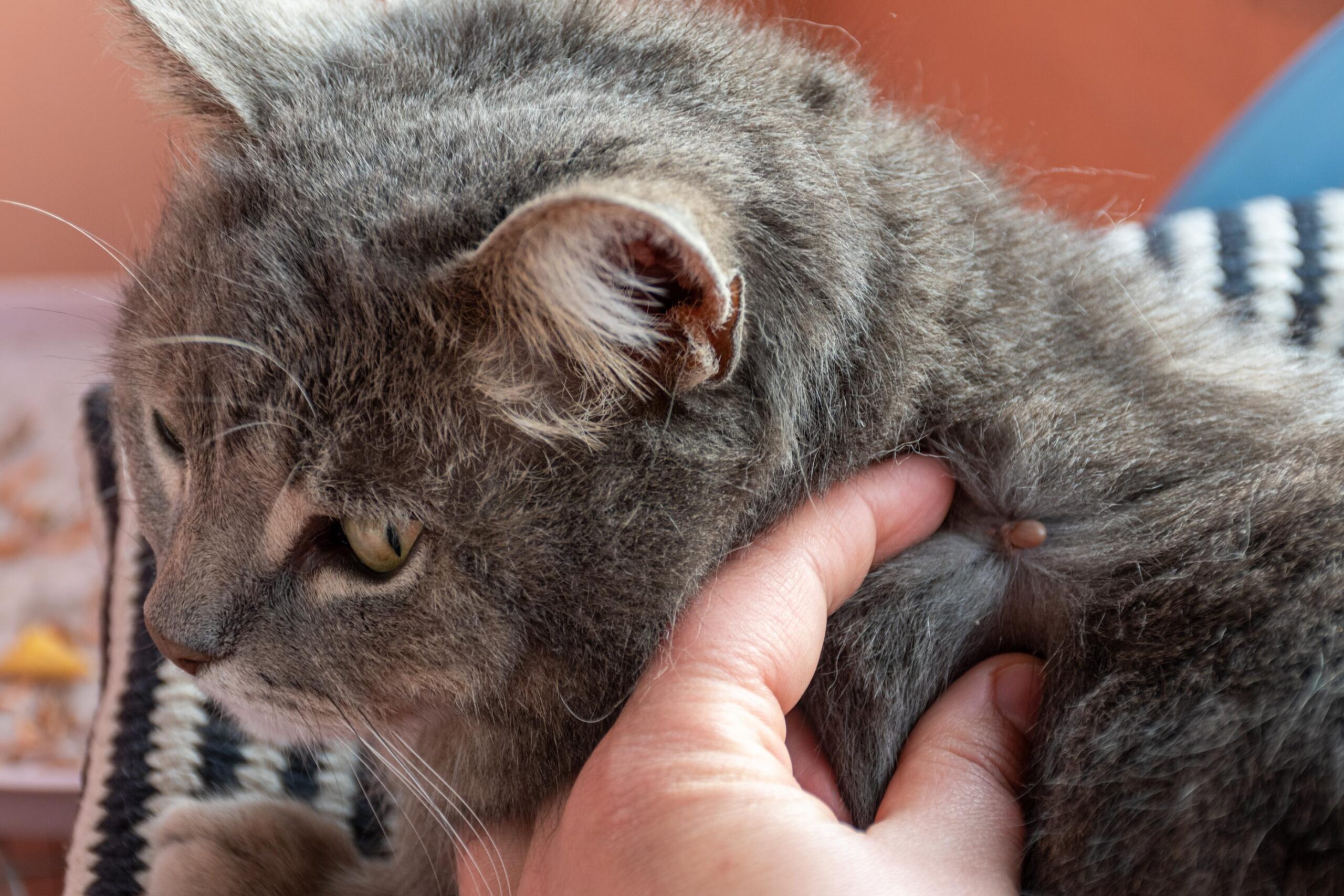Parasites don’t take vacations. To believe otherwise leaves your pet vulnerable to serious health issues.
Despite growing awareness, too many pet parents still rely on outdated information or seasonal habits that compromise their fur baby’s safety.
Below, the veterinarians at Newport Mesa Animal Hospital dispel the most common flea and tick prevention myths so you can protect your pet year-round.
8 Worst Misconceptions About Flea & Tick Prevention
- Fleas and ticks aren’t active in the winter.
- Indoor pets don’t need tick or flea prevention.
- You’ll see the parasites before they become a problem.
- Natural remedies work just as well as prescription products.
- Flea collars alone are enough to prevent infestation.
- You can stop preventative medication after one or two doses.
- Flea & tick prevention stops pests; they don’t support health.
- Preventative flea & tick medications are “one-size-fits-all.”


Myth #1: Fleas and Ticks Aren’t Active in the Winter
Many pet owners believe these pests die off during colder months. The truth? Fleas can survive indoors all year, and ticks become active any time temperatures rise above freezing.
Skipping flea and tick prevention in the winter leaves a dangerous window open — especially in temperate climates like Southern California.
Read “A Complete Guide to Flea & Tick Prevention in Orange County” to learn everything you must know about protecting your pet in California.
Myth #2: Indoor Pets Don’t Need Tick or Flea Prevention
Even indoor pets are at risk. Fleas can hitchhike on your clothing or shoes, and ticks can ride in on other animals or people.
Once inside, they reproduce rapidly. Consistent tick and flea prevention is just as important for pets who stay indoors as it is for those who venture outside.
Myth #3: You’ll See the Parasites Before They Become a Problem
Fleas and ticks are expert hiders, and by the time you spot one, there may already be dozens — if not hundreds — infesting your home.
Some pets also have allergic reactions to even a single flea bite. That’s why early and consistent protection is essential.
Myth #4: Natural Remedies Work Just as Well as Prescription Products
While some natural products may help deter pests, they often lack the efficacy and duration of vet-recommended preventatives.
Inconsistent or weak protection can lead to infestations, infections, and costly treatment. For proven results, consult your veterinarian to choose the right flea and tick prevention products.
Myth #5: Flea Collars Alone are Enough to Prevent Infestation
Many over-the-counter flea collars only protect the neck area and wear off quickly. Some offer little tick protection at all. Prescription-strength collars can be highly effective, but they still work best as part of a comprehensive prevention plan personalized by your vet.
Myth #6: You Can Stop Preventative Medication After One or Two Doses
t’s very risky to stop flea & tick prevention after just one or two months. Fleas and ticks reproduce quickly, and just one lapse in protection can restart the cycle. Continuous use is key to breaking the infestation loop.
Myth #7: Flea & Tick Prevention Stops Pests; They Don’t Support Health
Parasites aren’t just a nuisance, they’re disease carriers. Ticks transmit Lyme disease and ehrlichiosis. Fleas can spread tapeworms and cause anemia in small pets. By providing proper pest prevention, you’re protecting your pet’s long-term health, not just their comfort.
Myth #8: Preventative Flea & Tick Medications are “One-Size-Fits-All.”
Every pet has unique needs. Age, breed, weight, medical history, and lifestyle all factor into the best tick and flea prevention strategy. Some pets require special formulations, while others may be better suited for topical or oral options. A professional pet wellness exam can guide your decision.
Don’t Let Myths Dictate Your Pet’s Wellness Plan
Misinformation puts your pets at risk. To ensure your flea and tick prevention plan is safe and effective, consult with the veterinary team at Newport Mesa Animal Hospital.
We’ll assess your pet’s risk level, recommend the right products, and help you build a plan that protects your pet 365 days a year. To discuss the best year-round parasite prevention for your dog or cat, book an appointment today.

